Homo Economicus: The Matrix of Capitalist Power
The figure of homo economicus, enacted within economics in formatation of postulate, moved into the economic powers’ monadological field from the second half of the 18th Century, being communitarily assumed as capitalist rationality’s paradigmatic matritial imperative, invested of causality towards effects of what Foucault called biopower.
Egoist, competitive, omniscient and projective, homo economicus aimed not only to control political power but, above all, to dominate it, being, precisely, the impetus of domain, of protoplasmic inspiration, the engine behind the desire to possess wealth through judgments of comparative synthesis of efficacy of means for accumulation. The somatization of selfish-pleasure maximization came to be assumed within economics and game theory as a fundamental element for an (expected) utility-maximizing competitive rationality.
In this sense, the rational behavior determined by paradigm would be the one that could predict every possible outcome for all its alternative choices and, moved by a selfish (expected) utility-maximization objective, would choose the (expected) utility-maximizing solution.
Devoid of face, empathy, beliefs and values, homo economicus imposed itself, mainly from the second half of the 19th Century, as sociopath ethos in rhythmated radicularity with the growth and development of capitalism, being integrated in the ideological support of rational exemplarity towards mechanical effects of calculation in models applied to market dynamics: models in which the borders were defined by the capitalist game’s rules, polarized by a strategic ontology of competition and domain, in which the objective was the maximization of individual (expected) utility, driven by self-interest.
At the root of the rationality model, exemplified by homo economicus, was the objective of political-power control by capitalist economic power, with consequences for the autonomy of nations, states, societies, groups and peoples.
The nation, civil society, or, simply, society, the people, the workers were classified by criteria of utility — valued as transactionable resources and submitted to rules of life and death through the concrete application of a sociopathic rationality model synthesized in the figure of an eidos: the homo economicus, whose mimetic causality aimed, by inductive contamination, to erase the arbitriu in the human person, reducing it to that which Deleuze and Guattari came to designate as desiring machines.
When one addresses rationality, one is addressing a constitutive property of entities capable of reason; notion radiculated in the Latin ratio means calculation, rationem ducere means computare, to calculate.
All living entities calculate. To calculate is a reason for life, a reason for survival, a reason of necessity. To desire, from the Latin desiderare, incorporates an active dispositional ontological sense of lacking that does not cease with the possession of objects, or the desired things. Desire occurs in opposition to necessity. Necessity (necessitas) incorporates an abstract sense of completeness that points towards the dynamics of survival, being expressed in the form of a feeling that is deactivated in the ontological sustainability field by the presence of the object or needed thing.
The maximization of desire points towards a dynamics of permanent lacking; as criterion of rationality this imposes a cognitive undulatory that can “mask”, in the field of sustainability, the homeostatic feeling of necessity, provoking perceptive cognitive disturbances in behaviors, responses and actions, leading to a loss of the vital sense of necessity for the dynamics of survival, with consequences at levels of integrity losses.
In a sociopolitical dynamics of maximization of desire, the onto-cognitive consequences will express themselves in inevitable disaggregating pathologies, such as delirium and schizophrenia in parts of the system. Identities will be subsumed to the desiring activity. Deleuze and Guattari captured this dynamics very well: the desiring machines, molded by the rationality of homo economicus, express and typify, greatly, the capitalist rationality of exclusion of individual identities, and, thus, of respective autonomies as parts of the system. We, the individuals, the human persons, the workers, the slaves do not have a right to autonomy. We are the anonymous mass, the desiring machines that obey, serve, sustain entities such as Goldman Sachs, Monsanto and Wall Street, perpetuating their competitive practices and pragmatics of power for power’s sake through biopower: that is, the power over the environment, over the people, over the species, in a closed system’s thermodynamics in geometry of collapse.
Since the 19th Century, the economic models and market models have been predominantly built from homo economicus. The game does not vary, the rules are: empathic neutrality, exhaustive and selfish, the alternatives of decision are played in a finite strategic space of a closed system, the calculation is numerical/utilitarian for the wins and losses; for motivation, the calculation is for maximization of self-interested individual (expected) utility.
Limits to this game? Those of life, those of the evolutive (co)adaptation, those of the right to life, those of the right to difference, those of autonomy, those of the EthosPathos of dignity. The possible infinite combinatory of abritria, of projective positions can open the system to infinite alternatives of intuitive empathic cognitive support, with formulation of adaptive (co)expectations: (co)expectations of survival. Utility is no longer calculable, the wins and losses can no longer be numerically anticipated in game arithmetics. Payoffs contaminate the calculation of alternatives, the empathic relational web changing the cognitive processing of the game, making utility ineffective in the evaluation of strategic calculation. The maximization of the individual (expected) utility can lead to generalized losses, followed by collapse. The webs of sustainability can invalidate game theory based on homo economicus, exposing its sociopathic nature and contra-adaptiveness.
Editor’s Notes: All photographs by Quinn Dombrowski.
Related Articles


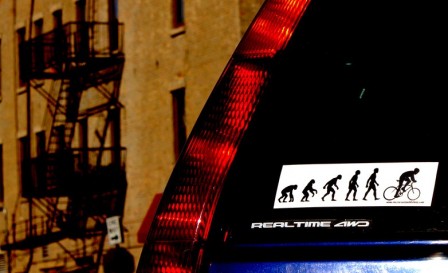
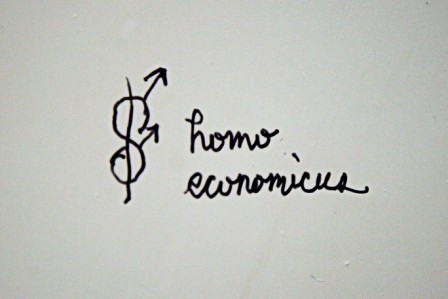
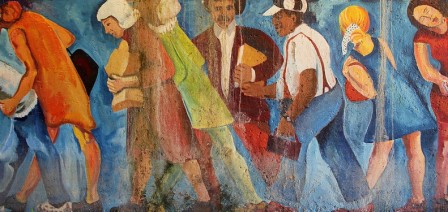
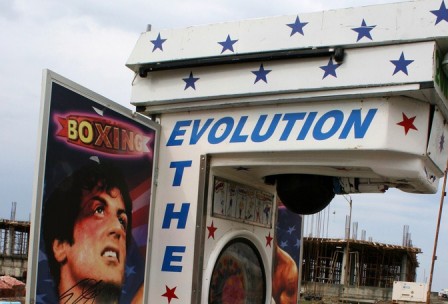
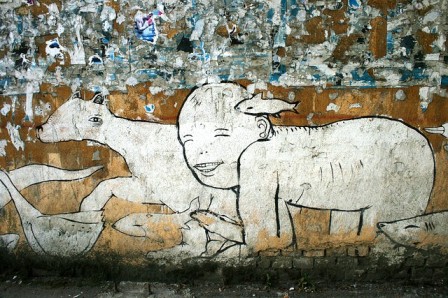













You must be logged in to post a comment Login